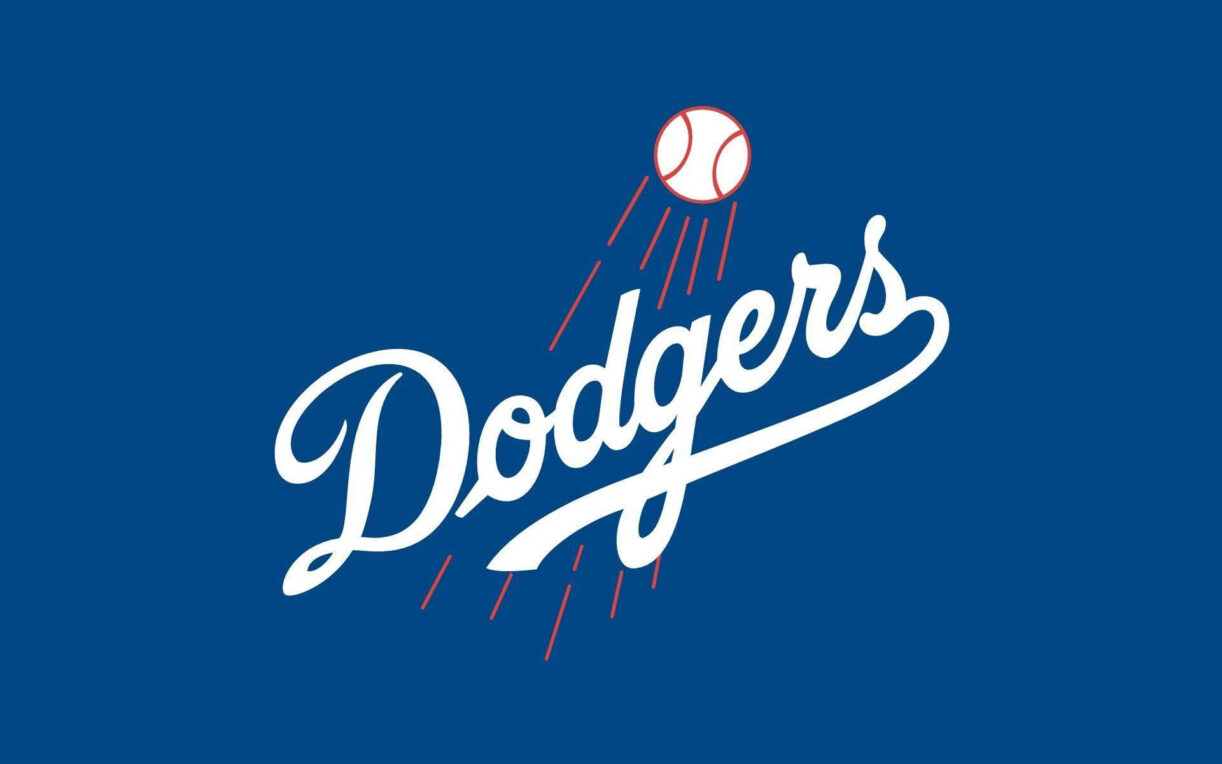The Los Angeles Dodgers, one of Major League Baseball’s most iconic franchises, have captivated fans for over a century with their storied history, legendary players, and relentless pursuit of excellence. From their humble beginnings in Brooklyn to becoming a powerhouse in the City of Angels, the team’s ownership has played a pivotal role in shaping its legacy. But who owns the Los Angeles Dodgers today? In 2025, the Dodgers are under the stewardship of Guggenheim Baseball Management, a powerhouse consortium led by Mark Walter. This ownership group has transformed the franchise into a global brand, blending financial acumen, star power, and a commitment to community impact. If you’re searching for insights into Dodgers ownership, current leaders, or how this group has fueled recent successes like multiple World Series titles, this comprehensive guide has you covered.
Understanding the Dodgers’ ownership isn’t just about names and numbers—it’s about the vision that drives a team valued at over $4.8 billion, according to recent Forbes estimates. As we dive into the history, key figures, and future prospects, we’ll explore how Guggenheim’s approach has elevated the Dodgers from a bankruptcy-riddled club to MLB’s gold standard.
A Storied Ownership History: From Brooklyn to Dodger Stadium
The Dodgers’ ownership timeline reads like a chapter from American sports history, marked by innovation, controversy, and triumph. Founded in 1883 as the Brooklyn Atlantics (later known as the Bridegrooms, Superbas, and Robins), the team was initially owned by a small cadre of local businessmen. Charles Byrne and Ferdinand Abell spearheaded the early years, navigating mergers and expansions that solidified the franchise’s place in the National League.
The Ebbets era defined much of the Brooklyn Dodgers’ golden age. Charles Ebbets, who took majority control around 1898, built Ebbets Field in 1913—a intimate ballpark that became synonymous with baseball romance. After Ebbets’ death in 1925, control passed through family heirs and trusts, including the Brooklyn Trust Company, until Branch Rickey and Walter O’Malley entered the picture in 1945. Rickey, the innovative executive behind Jackie Robinson’s integration of MLB in 1947, sold his stake to O’Malley in 1950.
O’Malley’s tenure (1950–1979) was transformative yet polarizing. He orchestrated the Dodgers’ relocation to Los Angeles in 1958, trading Brooklyn’s gritty charm for the sprawling West Coast promise. This move, approved by MLB amid threats of contraction, sparked lawsuits and fan heartbreak but laid the foundation for the Dodgers’ modern era. Peter O’Malley, Walter’s son, inherited control in 1979 and ran the team until 1998, emphasizing stability and community ties.
The late 1990s brought corporate involvement when News Corp’s Fox Entertainment Group acquired the team for $311 million in 1998. Fox’s ownership, bolstered by a minority stake from media mogul Robert Daly, focused on expansion but faltered amid scandals. In 2004, real estate developer Frank McCourt bought the Dodgers for $430 million, a deal initially hailed for its ambition. However, McCourt’s era unraveled due to lavish personal spending and a 2011 bankruptcy filing triggered by MLB Commissioner Bud Selig over financial mismanagement. This crisis paved the way for the current ownership, marking one of the most dramatic turnarounds in sports history.
The Guggenheim Era: A $2.15 Billion Game-Changer
In March 2012, Guggenheim Baseball Management emerged victorious from a bidding war that included heavyweights like Stan Kroenke and Steve Cohen. The group agreed to pay a then-record $2.15 billion for the Dodgers and surrounding Dodger Stadium land, with the deal closing on May 1, 2012. This acquisition not only rescued the franchise from uncertainty but also set a new benchmark for sports valuations.
At the helm is Mark Walter, the Iowa-born CEO of Guggenheim Partners, a global investment firm managing over $350 billion in assets. Walter, with an estimated net worth exceeding $12 billion, serves as chairman and controlling owner. His vision emphasizes sustainable growth, player development, and fan engagement. Under Guggenheim, the Dodgers inked a groundbreaking 25-year, $8.35 billion television rights deal with Time Warner Cable (now Spectrum) in 2013, launching SportsNet LA and boosting annual revenue to over $500 million by 2025.
The ownership group’s diverse composition reflects a blend of entertainment, finance, and sports expertise. Core members include:
- Magic Johnson: The NBA legend and entrepreneur holds a significant stake, bringing marketing savvy and celebrity appeal. Johnson’s involvement has amplified the Dodgers’ brand, from star-studded events to community outreach.
- Peter Guber: A Hollywood producer behind hits like Rain Man and owner of the Golden State Warriors (via a minority stake), Guber infuses creative storytelling into the team’s operations.
- Stan Kasten: As president and CEO, the veteran executive (formerly with the Atlanta Braves and Nationals) oversees day-to-day management, credited with building the Dodgers’ vaunted farm system.
- Todd Boehly: The financier, now co-owner of Chelsea FC, contributed to the initial bid and focuses on international expansion.
- Bobby Patton: A Texas oil magnate, Patton provides quiet financial muscle.
Later additions enhanced the group’s inclusivity:
- Billie Jean King and Ilana Kloss (2018): The tennis icon and her partner joined as minority owners, championing gender equality and youth sports through the Dodgers Foundation.
- Alan Smolinisky and Robert L. Plummer (2019): These real estate entrepreneurs rounded out the consortium, emphasizing philanthropic efforts.
This collaborative model contrasts sharply with the solo ownerships of the past, fostering decisions that prioritize long-term success over short-term gains.
Transforming the Franchise: Championships, Investments, and Innovation
Guggenheim’s impact is undeniable on the field and off. Since 2012, the Dodgers have won two World Series titles (2020 and 2024), eight National League pennants, and 11 division crowns—more than any other MLB team in that span. High-profile signings like Shohei Ohtani (10-year, $700 million deal in 2023) and Yoshinobu Yamamoto exemplify their aggressive payroll strategy, with luxury tax payments topping $500 million in 2024 alone.
Off the diamond, investments have modernized the fan experience. Dodger Stadium, the third-oldest MLB venue, underwent a $100 million renovation, adding premium seating, LED scoreboards, and sustainable features. The group launched the Dodgers Foundation in 2013, raising over $50 million for underserved youth in Los Angeles, aligning with Walter’s advocacy for social justice and conservation.
Financially, the Dodgers’ value has soared from $2.15 billion in 2012 to approximately $4.8 billion in 2025, per Forbes. This growth stems from diversified revenue streams, including merchandise, sponsorships, and digital media. Guggenheim’s media savvy—evident in expanded streaming partnerships—has broadened the team’s reach, especially among international fans in Asia and Latin America.
Community Ties and Social Impact Under Current Ownership
What sets Guggenheim apart is its commitment to Los Angeles’ fabric. Mark Walter, a vocal conservationist, has steered initiatives like the “Think Blue LA” environmental program and partnerships with local schools. Magic Johnson’s influence shines in urban revitalization projects, such as the Dodgers’ support for South LA economic development.
The ownership group’s diversity—spanning genders, ethnicities, and industries—mirrors MLB’s evolving landscape. Billie Jean King’s involvement has spotlighted women’s empowerment, including girls’ baseball clinics that serve thousands annually. These efforts not only enhance the Dodgers’ reputation but also drive ticket sales and loyalty in a competitive entertainment market.
Looking Ahead: Stability and Expansion in 2025 and Beyond
As of October 2025, Guggenheim’s grip remains firm, with no indications of sales or shifts. Mark Walter’s recent moves, including his June 2025 agreement to acquire majority ownership of the Los Angeles Lakers for $10 billion, signal a bold cross-sport empire-building strategy. This could synergize resources between the Dodgers and Lakers, from shared marketing to joint community programs.
Challenges persist: escalating player salaries, broadcast rights negotiations post-SportsNet LA’s carriage disputes, and navigating MLB’s competitive balance tax. Yet, Guggenheim’s track record suggests resilience. With a deep farm system and stars like Ohtani locked in, the Dodgers are poised for another dynasty run.
Conclusion: A Ownership Legacy Built for the Future
Who owns the Los Angeles Dodgers? Guggenheim Baseball Management, under Mark Walter’s leadership, represents a new era of collaborative, visionary stewardship. From averting financial collapse to hoisting championship trophies, this group has redefined what it means to own a sports franchise. For fans, investors, and baseball purists alike, the Dodgers’ ownership story is one of redemption, innovation, and unwavering passion for the game. As the team eyes more October glory, Guggenheim ensures the blue wave in LA shows no signs of slowing.
References
- Wikipedia. (2025). List of Los Angeles Dodgers owners and executives. Retrieved from https://en.wikipedia.org/wiki/List_of_Los_Angeles_Dodgers_owners_and_executives
- Wikipedia. (2025). Guggenheim Baseball Management. Retrieved from https://en.wikipedia.org/wiki/Guggenheim_Baseball_Management
- MLB.com. (2025). Mark Walter | Los Angeles Dodgers. Retrieved from https://www.mlb.com/dodgers/team/front-office/mark-walter
- MLB.com. (2025). Dodgers Foundation Board of Directors. Retrieved from https://www.mlb.com/dodgers/community/foundation/about/board-of-directors
- Los Angeles Times. (2025, June 19). Four things to know about Mark Walter’s Dodgers ownership. Retrieved from https://www.latimes.com/sports/story/2025-06-19/four-things-to-know-about-mark-walters-dodgers-ownership

